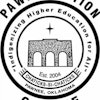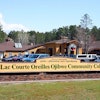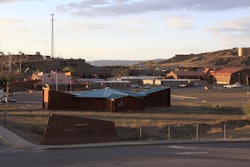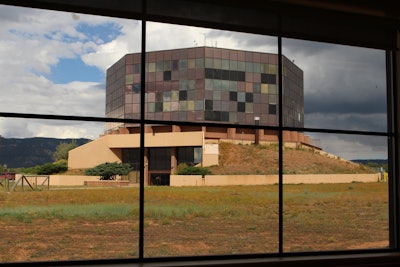 Diné College
Diné College
But the June 29 Supreme Court ruling in Oklahoma v. Castro-Huerta has placed that sovereignty into question, and Native American scholars are worried about the implications for their people, nations, schools, and the new precedent this sets for future rulings.
“Make no mistake: this is an attack on tribal sovereignty,” said Carrie Billy, president and CEO of the American Indian Higher Education Council (AIHEC). Billy worked with Dr. David E. Yarlott, Jr., chair of the AIHEC Board of Directors and president of Little Big Horn College, a TCU in Crow Agency, MT, to draft a statement in the wake of the ruling.
"Tribal sovereignty is an inherent right—it was not granted by the U.S. government, and it cannot be taken away by the U.S. government," the statement read. "It is acknowledged in binding treaty obligations that even the Supreme Court cannot overturn."
Oklahoma v. Castro-Huerta is a criminal case, and its decision gives the state concurrent jurisdiction with the federal government and tribal governments, essentially folding reservations into the states in which they reside. This allows for state-led criminal prosecutions of non-Natives for any crimes that happen in federally established Native territory.
The ruling also went against precedent established just two years earlier in the case of McGirt v. Oklahoma.
Cheryl Najera, a criminal justice instructor at the College of the Muscogee Nation, a TCU in Okmulgee, OK, said the McGirt decision felt like the Supreme Court finally understood what Native Americans had always known: “that our reservations, dating back to removal, were never disestablished.”
But reading the Castro-Huerta decision felt completely opposite, said Najera.
“The language and reasoning given was frustrating to read. It clearly negated nearly 200 years of case law dating back to the 1831 case of Worcester v. Georgia,” Najera said.
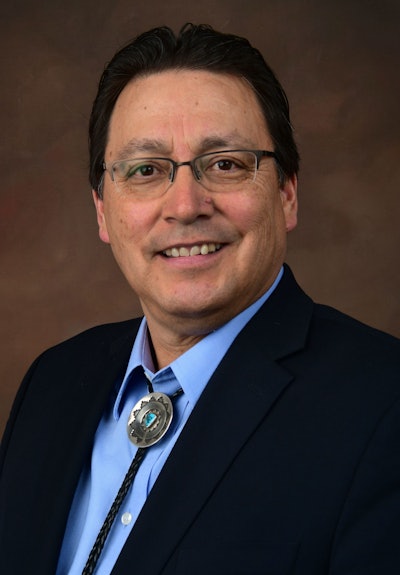 Dr. Charles “Monty” Roessel, president of Diné College.
Dr. Charles “Monty” Roessel, president of Diné College.
“What I heard from faculty is, if [tribal sovereignty] is off the table now, then what else is possible? In some ways, we’re all thinking, ‘Where are we vulnerable?’” said Roessel, who added that the ruling came as somewhat of a surprise. “We didn’t think it would be like this. We thought there’d be some pull back, but the concept of tribal sovereignty would still be there.”
Before Oklahoma v. Castro-Huerta, Roessel said tribal members felt something close to comfortable, able to stretch into their identities as nations with their own rhetorical and food sovereignty. Now, the ruling has made every day “about our survival, again," said Roessel.
Dr. Cheryl Crazy Bull, president and CEO of the American Indian College Fund, said educators and TCUs play key roles in helping tribal members and non-tribal members understand exactly what tribal sovereignty is and why it’s critical to the protection of their Native American identity.
“Tribal sovereignty is our modern-day reflection of our self-governance. Self-governance is those things that you’re able to sustain as a people, whether through a formal structure like a government or through your community [or] traditional laws, those things that make you who you are and those things that make you unique,” said Crazy Bull. “Our languages, our land, our ceremonial practices, the way we understand our relationship to creation, our social and family structure, all those kinds of things make you a people. And in modern society, they make you sovereign.”
TCUs, said Crazy Bull, underscore a Native American’s right self-determination, something this ruling has called into question.
“I do think people need the historical context to accept that we basically traded our lands for some kind of relationship with the federal government. We didn’t trade our lands with the states. And we still retain our inherit right to our identity—we didn’t give that away," said Crazy Bull.
Like many Native American scholars, Crazy Bull is concerned about the new precedent this ruling sets for the Supreme Court’s upcoming hearing in October on Brackeen v. Haaland, which will decide the fate of the Indian Child Welfare Act (ICWA), established in 1978.
ICWA says that tribal governments must have a say in who adopts a Native American child should parents lose custody. According to the Native American Rights Fund, before ICWA, up to 35% of Native American children were removed from their homes by state welfare and adoption agencies. Even if relatives were willing and able to bring those children into their homes, roughly 85% of all Native American adoptees were placed with non-Native families, removing them from their culture, language, and identity.
Roessel explained it like this:
“Imagine going into another country and trying to adopt—you have to go through the government. it has a role and place to say where and who can adopt their children. To now look at it this way and say, you don’t [have that right] as a tribe, it means you don’t believe tribal nations are nations,” said Roessel. “In order to get to that place, you have to do away with precedent, the treaties, with an awful lot of stuff to get to the point to say anyone can adopt a Native American child.”
ICWA works because Native Americans are federally classified as a political entity, as members of nations. If the Supreme Court ruling in Brackeen v. Haaland establishes Native Americans as a racial identity only, ICWA could be ruled unconstitutional. Crazy Bull said the ruling could even impact tribal K-12 education, as well as TCUs.
“We’re worried it could become Brown v. Board of Education. Our education systems could become viewed as somehow discriminatory or invalid,” said Crazy Bull. “We’re worried as educators about how to educate Congress, the people in our states. It’s a hard role.”
As TCUs approach the upcoming fall semester, Billy and Yarlott say they will work even harder to make sure TCUs are meeting the new needs and concerns of their students, continuing their work despite the ebbs and flows of the judicial branch. For Crazy Bull, reaffirming tribal sovereignty is just another step in the long journey of The People, how many Native Americans refer to themselves.
“TCUs are not only an act of sovereignty, if we are chartered to affirm the rights of people, but we’re also in a position where we can influence our own people’s understanding of how they can participate—elections matter,” said Crazy Bull.
Liann Herder can be reached at [email protected].


